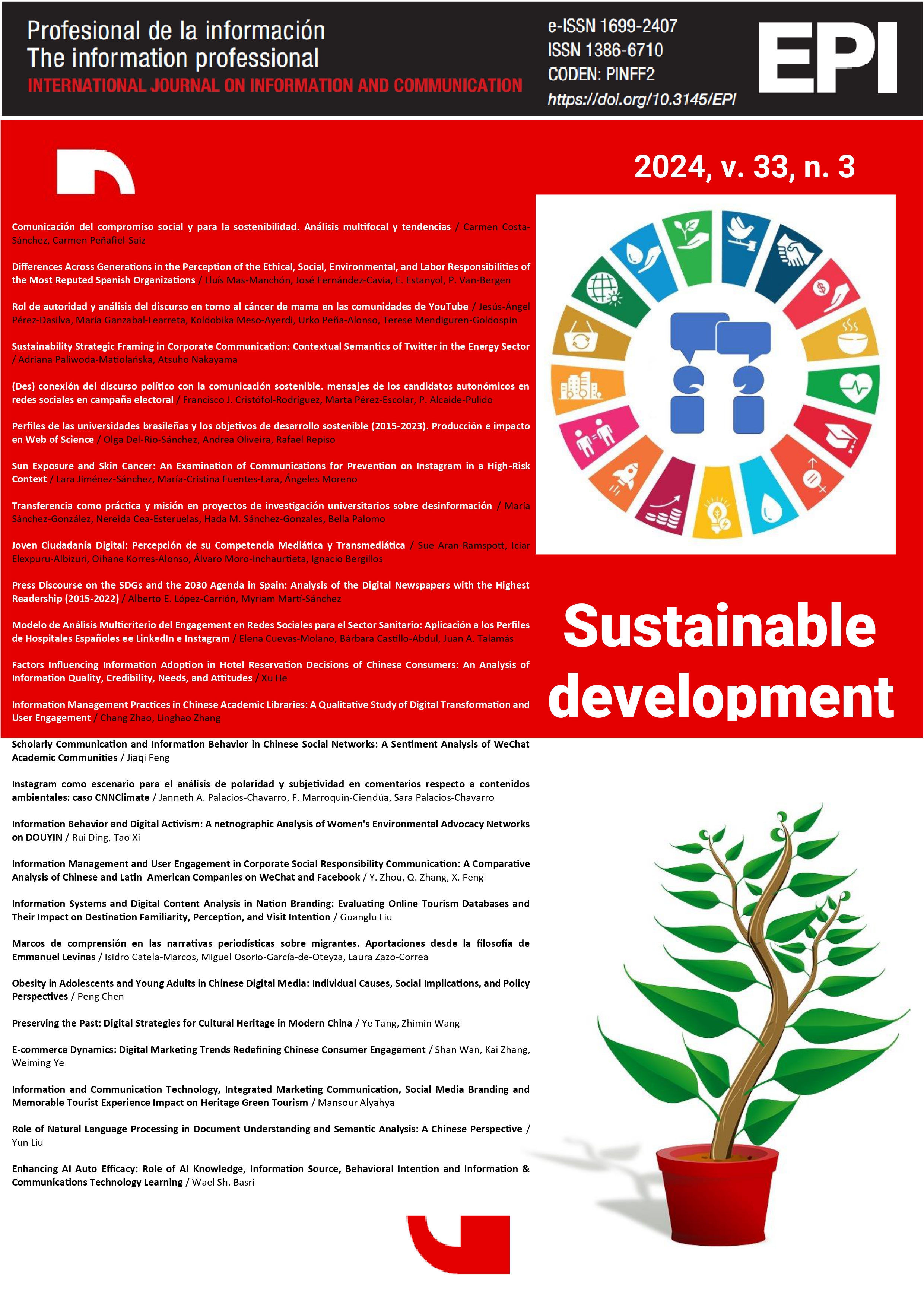Transfer as Practice and Mission in University Research Projects on Disinformation
DOI:
https://doi.org/10.3145/epi.2024.0308Keywords:
Journalism, Communication, Research, Innovation; R&D&I, Knowledge Transfer, Third Mission, University, Dissemination, Literacy, Verification, Disinformation, Fake News, Fact-Checking, Social ResponsibilityAbstract
Knowledge transfer, as a "third mission" and an activity connected to research, is essential for the university social
function. This paper analyses the transfer activities carried out by Spanish and international research projects with a focus
on disinformation in the Iberian Peninsula. We located 46 projects with these requirements, contacted those responsible
and obtained the response of 25 through an online questionnaire that includes characteristics, timing, typology,
contributors and audience of the activities completed, in progress or programmed (46 in total) as well as the perception
of researchers on the transfer. The results show that the vast majority of disinformation projects (84%) carry out transfer
activities, although many are limited to one or two, not always formalised via OTRI or similar. The projects themselves act
as leaders or promoters in almost three out of four activities, although it is common to have at least one partner (58.6%).
Their typology and target groups vary according to the objectives and area of the projects. It is noteworthy training for
different groups, together with training, support and guidance resources, often multimedia and online. To a lesser extent,
there are technological development activities, materialised in open digital applications and tools. The crossing of these
two variables (typology and recipients) shows that social transfer is the largest group (43.48%), followed by professional
(23.91%), technological (17.39%) and academic (15.22%). Despite being isolated and incipient practices, there is
agreement among researchers in perceiving them as an essential part of their mission. Their vision in many cases is close
to the "quadruple helix" model, which is oriented towards social innovation and responding to citizen demands on
misinformation through collaborative approaches between university, government, companies and society.
Downloads
Downloads
Published
How to Cite
Issue
Section
License
Copyright (c) 2024 Profesional de la información

This work is licensed under a Creative Commons Attribution 4.0 International License.
Dissemination conditions of the articles once they are published
Authors can freely disseminate their articles on websites, social networks and repositories
However, the following conditions must be respected:
- Only the editorial version should be made public. Please do not publish preprints, postprints or proofs.
- Along with this copy, a specific mention of the publication in which the text has appeared must be included, also adding a clickable link to the URL: http://www.profesionaldelainformacion.com
- Only the final editorial version should be made public. Please do not publish preprints, postprints or proofs.
- Along with that copy, a specific mention of the publication in which the text has appeared must be included, also adding a clickable link to the URL: http://revista.profesionaldelainformacion.com
Profesional de la información journal offers the articles in open access with a Creative Commons BY license.




